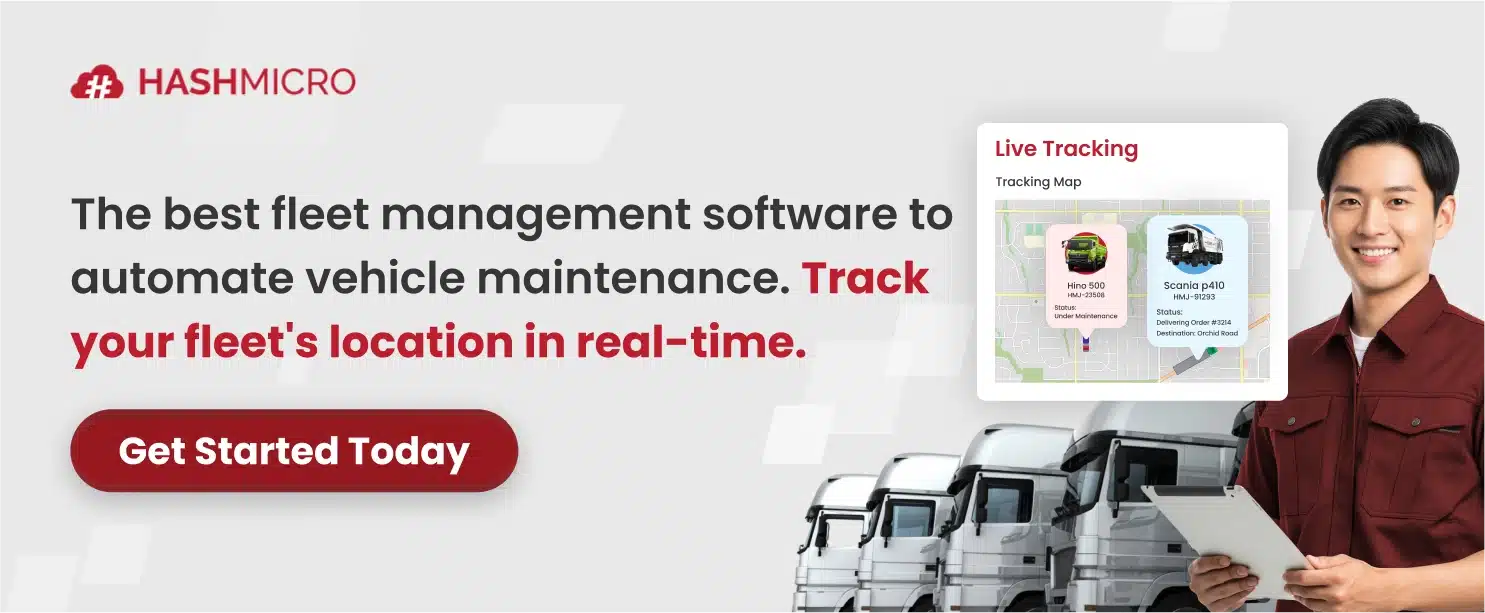Transportation service plays a vital role in the supply chain, moving goods from one place to another. However, transportation is not just about moving goods. It’s about ensuring that goods are delivered on time, securely, and efficiently. For transportation service providers, this means optimizing their operations and resources.
From coordinating with drivers and maintaining vehicles, there are numerous factors to consider in order to ensure smooth transportation operations. To achieve these goals, many transportation companies are turning to Enterprise Resource Planning (ERP) software.
This article will explain the benefits of using ERP software in transportation services and how it can help streamline your operations.
Table of Content:
Table of Content

What is ERP for Transportation Service?
ERP for transportation services is a system designed to simplify transportation service operations. It allows businesses to track and manage transportation-related activities such as shipment tracking, inventory management, route planning, and vehicle maintenance. Moreover, the system provides real-time data and insights into their transportation activities.
What are ERP Roles for Transportation Services?
Enterprise Resource Planning (ERP) systems are a vital tool for transportation services as they help to streamline operations and increase efficiency. To ensure the smooth functioning of an ERP system in transportation services, it is important to have a clear understanding of the different roles involved. Here are some of its roles in transportation services and their significance in the system’s overall functioning:
Real-time fleet monitoring
Firstly, an ERP system allows transportation companies to monitor their fleet in real time. This includes tracking vehicle locations, monitoring fuel usage, and keeping track of maintenance schedules. With real-time fleet monitoring, businesses can make informed decisions and adjust routes as needed to optimize performance as well as reduce costs.
Also Read: 5 Tips for Efficiency Boost Fleet Management for Singapore Businesses
Reduce operational cost
Second, an ERP system reduces operational costs by automating tasks and improving efficiency. It helps businesses to optimize their routes to reduce fuel costs and minimize travel time. It also automates administrative tasks like billing and invoicing, reducing the time and effort required to manage these tasks manually.
Driver and staff management
Next, an ERP system assists transportation service companies in managing their staff and drivers. It keeps track of driver certifications and training, ensuring that all drivers are properly trained and qualified to operate their vehicles. Not only that, the system is capable of tracking a driver’s driving hours and activities.
Maintain safety and quality
The system assures businesses of high levels of safety and quality. It aids businesses in managing vehicle maintenance schedules. This ensures that vehicles are regularly serviced to minimize the risk of breakdowns and accidents. Additionally, ERP can monitor driver behavior and provide feedback on improvement areas.
Effective reporting and analysis
ERP generates comprehensive reports and analyzes data to make informed decisions. It provides detailed information related to transport, for instance, fuel usage. In addition, robust fleet management software enables you to control all aspects of your transport service operation from a single dashboard. This is done by integrating with other systems.
Improve customers experience
An ERP system provides transportation companies with a better customer experience by improving communication. It facilitates real-time tracking of goods, allowing customers to know the exact location of their shipment at any given time. This visibility results in trust and confidence in your service, increasing customer satisfaction and repeat business.
Easy maintenance scheduling
Transportation companies often have a large fleet of vehicles that require regular maintenance to ensure safety and efficiency. The system helps automate maintenance schedules. As a result, vehicles are serviced at the right time, reducing downtime, and improving the lifespan of your assets.
The Right ERP for Transportation Service
Lastly, as a transportation service provider, choosing the right ERP system can be crucial to your success. One of the leading options in the market is HashMicro’s Fleet Management Software.
This software is suitable for transportation service providers. It works by automating manual processes involved in transportation management, from vehicle tracking and maintenance to route planning and scheduling,
Some of the key features of the software include work order management, cost tracking, maintenance scheduling, and a document management system. In addition, it is capable of integrating with several systems, such as Repair Management System and Accounting Software. This ability further benefits your business.
Conclusion
Implementing an ERP software solution is an excellent way to simplify transportation service operations. With a well-designed one, you can manage all aspects of your fleet, including maintenance, scheduling, and inventory control, all in one place.
By automating manual processes and optimizing resource allocation, the system helps transportation companies stay competitive and meet the demands of their customers.
With software like HashMicro’s Fleet Management Software, transportation companies can take advantage of the latest technology to achieve these benefits. It offers a set of robust features that enable you to streamline your transportation service operations.
Consider implementing it today and get up to 50% off on the Productivity Solutions Grant (PSG)! Get a free demo now!























































